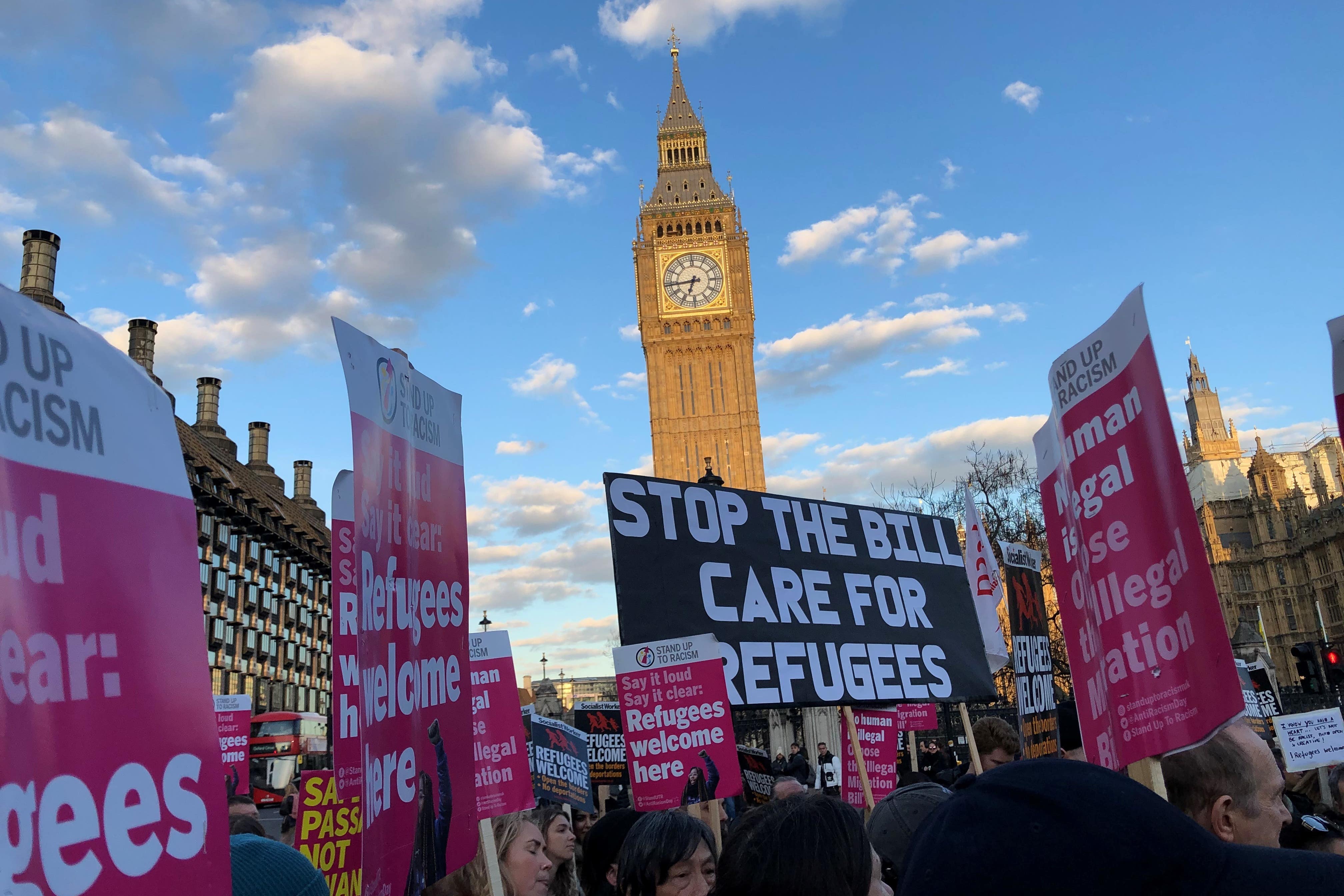Threat to delay Illegal Migration Bill emerges as peers demand impact assessment
Home Office minister Lord Murray of Blidworth repeatedly said details of the economic impact assessment will emerge ‘in due course’.

Your support helps us to tell the story
From reproductive rights to climate change to Big Tech, The Independent is on the ground when the story is developing. Whether it's investigating the financials of Elon Musk's pro-Trump PAC or producing our latest documentary, 'The A Word', which shines a light on the American women fighting for reproductive rights, we know how important it is to parse out the facts from the messaging.
At such a critical moment in US history, we need reporters on the ground. Your donation allows us to keep sending journalists to speak to both sides of the story.
The Independent is trusted by Americans across the entire political spectrum. And unlike many other quality news outlets, we choose not to lock Americans out of our reporting and analysis with paywalls. We believe quality journalism should be available to everyone, paid for by those who can afford it.
Your support makes all the difference.Peers have threatened to delay the Illegal Migration Bill until the Government publishes the “facts and figures” showing the financial impact of the controversial proposals.
Home Office minister Lord Murray of Blidworth was heckled by peers as he repeatedly said an economic impact assessment on the Bill would be “published in due course”.
But former senior judge Baroness Butler-Sloss, an independent crossbench peer, said it was “outrageous” the House of Lords was being asked to take decisions on the proposals without knowing the predicted impact of them.
Labour’s Lord Hunt of Kings Heath received shouts of encouragement as he said the Bill should not progress to its next stage without the impact assessment being available.
The Bill is a key part of Prime Minister Rishi Sunak’s bid to deter people from crossing the Channel in small boats.
The reforms would prevent people from claiming asylum in the UK if they arrive through unauthorised means.
The Government also hopes the changes will ensure detained people are promptly removed, either to their home country or a third country such as Rwanda.
The Bill is undergoing line-by-line scrutiny in the Lords at committee stage, with the Government braced for amendments to be made by peers at report stage.
My own thinking is that the House should not allow the Bill to go into report stage without the impact assessment being available
After Lord Murray sidestepped questions on the details and timing of the economic impact assessment, Lady Butler-Sloss said: “How does the Government justify not having an impact statement until presumably the whole of this House has completed its dealing with the Bill?
“It seems to me outrageous. How can the Government justify it?”
Conservative Lord Cormack noted the House has to make “significant” decisions at report stage on the “most sensitive legislation that has been before Parliament for a very long time”.
He said: “It is crucial we have all the facts at our disposal.”
Lord Hunt added: “I think the House is entitled to ask the minister what he means by ‘in due course’.
“Let me ask him specifically whether the impact assessment will be available before we move into report stage?
“Because my own thinking is that the House should not allow the Bill to go into report stage without the impact assessment being available.”
Shouts of “hear, hear” and “well said” could be heard after Lord Hunt made his point.
We are whistling in the dark. We have no idea what it means
Lord Murray replied: “Clearly I hear what the noble lord says and I will take back his comments and the comments of others in the House, and we can reflect on them.”
For Labour, home affairs spokesman Lord Coaker sought clarity on how many people could be removed from the UK under the proposals.
He also said: “In order to make proper decisions… it’s a convention that those facts are made available.
“At the very least they should be made available before report, they should be made available.”
He added: “We are whistling in the dark. We have no idea what it means.”
Lord Coaker later asked: “Where’s all the other facts and figures? No idea.”
An analysis produced by the Refugee Council said it would cost between £8.7 billion and £9.6 billion to detain and accommodate people impacted by the Bill in the first three years of its operation.
The Government last month published an equality impact assessment which concluded disqualification from modern slavery support under the Bill could have a disproportionate impact on female potential victims.
The Bill faces a rocky ride in the Lords, with the Archbishop of Canterbury Justin Welby previously condemning it as “morally unacceptable and politically impractical”.
Peers later discussed amendments to the list of countries or territories where a person may be removed, with suggestions to explicitly state that LGBT+ people should not be taken to some of them due to fears of persecution.
A separate amendment also suggested removing Rwanda from the list given legal action to challenge the plan.